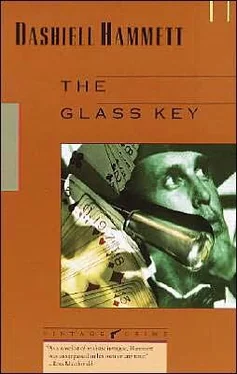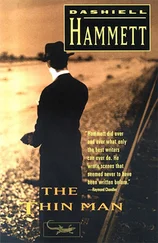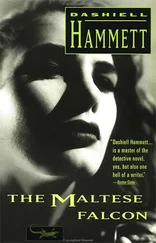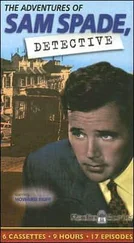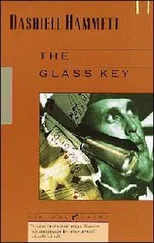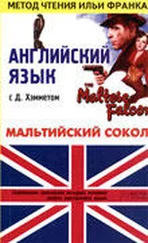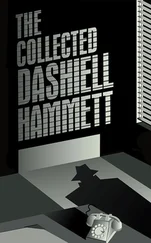Madvig's blue eyes were opaque and his voice was as difficultly read as his eyes. He said. "If you make it mean killing."
The white-haired man nodded. "It'll have to mean killing," he said, still sadly. "I'm too big to take the boot from you now."
Madvig leaned back in his chair and crossed his legs. His tone attached little importance to his words. He said: "Maybe you're too big to take it laying down, but you'll take it." He pursed his lips and added as an afterthought: "You are taking it."
Dreaminess and sadness went swiftly out of Shad O'Rory's eyes. He put his black hat on his head. He adjusted his coat-collar to his neck. He pointed a long white finger at Madvig and said: "I'm opening the Dog House again tonight. I don't want to be bothered. Bother me and I'll bother you."
Madvig uncrossed his legs and reached for the telephone on the table. He called the Police Department's number, asked for the Chief, and said to him: "Hello, Rainey Yes, fine. How are the folks? . . . That's good. Say, Rainey, I hear Shad's thinking of opening up again tonight. . . . Yes. . . . Yes, slam it down so hard it bounces. . . . Right.
Sure. Good-by." He pushed the telephone back and addressed O'Rory: "Now do you understand how you stand? You're through, Shad. You're through here for good."
O'Rory said softly, "I understand," turned, opened the door, and went out.
The bow-legged ruffian paused to spit—deliberately—on the rug in front of him and to stare with bold challenging eyes at Madvig and Ned Beaumont. Then he went out.
Ned Beaumont wiped the palms of his hands with a handkerchief. He said nothing to Madvig, who was looking at him with questioning eyes. Ned Beaumont's eyes were gloomy.
After a moment Madvig asked: "Well?"
Ned Beaumont said: "Wrong, Paul."
Madvig rose and went to the window. "Jesus Christ!" he complained over his shoulder, "don't anything ever suit you?"
Ned Beaumont got up from his chair and walked towards the door.
Madvig, turning from the window, asked angrily: "Some more of your God-damned foolishness?"
Ned Beaumont said, "Yes," and went out of the room. He went downstairs, got his hat, and left the Log Cabin Club. He walked seven blocks to the railroad station, bought a ticket for New York, and made reservations on a night train. Then he took a taxicab to his rooms.
7
A stout shapeless woman in grey clothes and a chubby half-grown boy were packing Ned Beaumont's trunk and three leather bags under his supervision when the door-bell rang.
The woman rose grunting from her knees and went to the door. She opened it wide. "My goodness, Mr. Madvig," she said. "Come right on in."
Madvig came in saying: "How are you, Mrs. Duveen? You get younger-looking every day." His gaze passed over the trunk and bags to the boy. "Hello, Charley. Ready for the job running the cement-mixer yet?"
The boy grinned bashfully and said: "How do you do, Mr. Madvig?"
Madvig's smile came around to Ned Beaumont. "Going places?"
Ned Beaumont smiled politely. "Yes," he said.
The blond man looked around the room, at the bags and trunk again, at the clothes piled on chairs and the drawers standing open. The woman and the boy went back to their work. Ned Beaumont found two somewhat faded shirts in a pile on a chair and put them aside.
Madvig asked: "Got half an hour to spare, Ned?"
"I've got plenty of time."
Madvig said: "Get your hat."
Ned Beaumont got his hat and overcoat. "Get as much of it in as you can," he told the woman as he and Madvig moved towards the door, "and what's left over can be sent on with the other stuff."
He and Madvig went downstairs to the street. They walked south a block. Then Madvig asked: "Where're you going, Ned?"
"New York."
They turned into an alley.
Madvig asked: "For good?"
Ned Beaumont shrugged. "I'm leaving here for good."
They opened a green wooden door set in the red brick rear wall of a building and went down a passageway and through another door into a bar-room where half a dozen men were drinking. They exchanged greetings with the bar-tender and three of the drinkers as they passed through to a small room where there were four tables. Nobody else was there. They sat at one of the tables.
The bar-tender put his head in and asked: "Beer as per usual, gents?"
Madvig said, "Yes," and then, when the bar-tender had withdrawn: "Why?"
Ned Beaumont said: "I'm tired of hick-town stuff."
"Meaning me?"
Ned Beaumont did not say anything.
Madvig did not say anything for a while. Then he sighed and said: "This is a hell of a time to be throwing me down."
The bar-tender came in with two seidels of pale beer and a bowl of pretzels. When he had gone out again, shutting the door behind him, Madvig exclaimed: "Christ, you're hard to get along with, Ned!"
Ned Beaumont moved his shoulders. "I never said I wasn't." He lifted his seidel and drank.
Madvig w-as breaking a pretzel into small bits. "Do you really want to go, Ned?" he asked.
"I'm going."
Madvig dropped the fragments of pretzel on the table and took a check-book from his pocket. He tore out a check, took a fountain-pen from another pocket, and filled in the check. Then he fanned it dry and dropped it on the table in front of Ned Beaumont.
Ned Beaumont, looking down at the check, shook his head and said: "I don't need money and you don't owe me anything."
"I do. I owe you more than that, Ned. I wish you'd take it."
Ned Beaumont said, "All right, thanks," and put the check in his pocket.
Madvig drank beer, ate a pretzel, started to drink again, set his seidel down on the table, and asked: "Was there anything on your mind—any kick—besides that back in the Club this afternoon?"
Ned Beaumont shook his head. "You don't talk to me like that. Nobody does."
"Hell, Ned, I didn't say anything."
Ned Beaumont did not say anything.
Madvig drank again. "Mind telling me why you think I handled O'Rory wrong?"
"It wouldn't do any good."
"Try."
Ned Beaumont said: "All right, but it won't do any good." He tilted his chair back, holding his seidel in one hand, some pretzels in the other. "Shad'll fight. He's got to, You've got him in a corner. You've told him he's through here for good. There's nothing he can do now but play the long shot. If he can upset you this election he'll be fixed to square anything he has to do to win. If you win the election he's got to drift anyhow. You're using the police on him. He'll have to fight back at the police and he will. That means you're going to have something that can be made to look like a crime-wave. You're trying to re-elect the whole city administration. Well, giving them a crime-wave—and one it's an even bet they're not going to be able to handle—just before election isn't going to make them look any too efficient. They—"
"You think I ought to've laid down to him?" Madvig demanded, scowling.
"I don't think that. I think you should have left him an out, a line of retreat. You shouldn't have got him with his back to the wall."
Madvig's scow-I deepened. "I don't know anything about your kind of fighting. He started it, All I know is when you got somebody cornered you go in and finish them. That system's worked all right for me so far." He blushed a little. "I don't mean I think I'm Napoleon or something, Ned, but I came up from running errands for Packy Flood in the old Fifth to where I'm sitting kind of pretty today."
Ned Beaumont emptied his seidel and let the front legs of his chair come down on the floor. "I told you it wouldn't do any good," he said. "Have it your own way. Keep on thinking that what was good enough for the old Fifth is good enough anywhere."
In Madvig's voice there was something of resentment and something of humility when he asked: "You don't think much of me as a big-time politician, do you, Ned?"
Читать дальше
